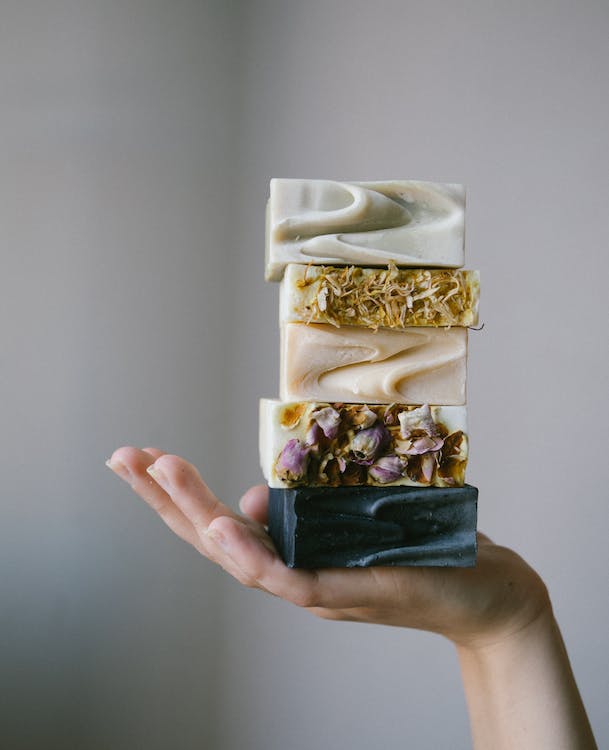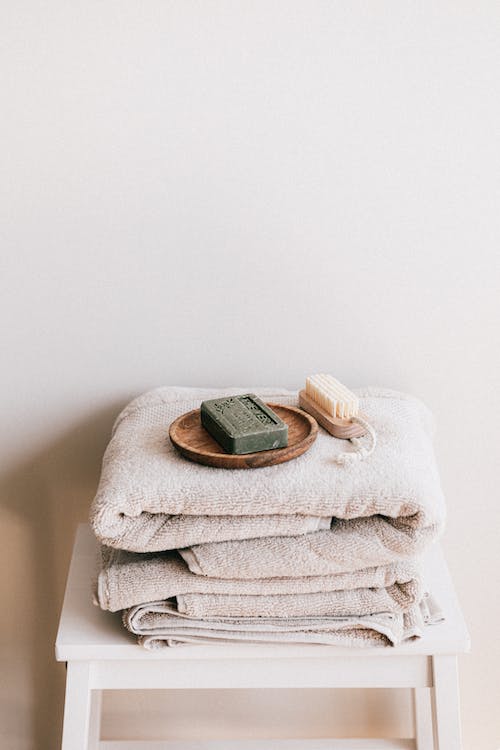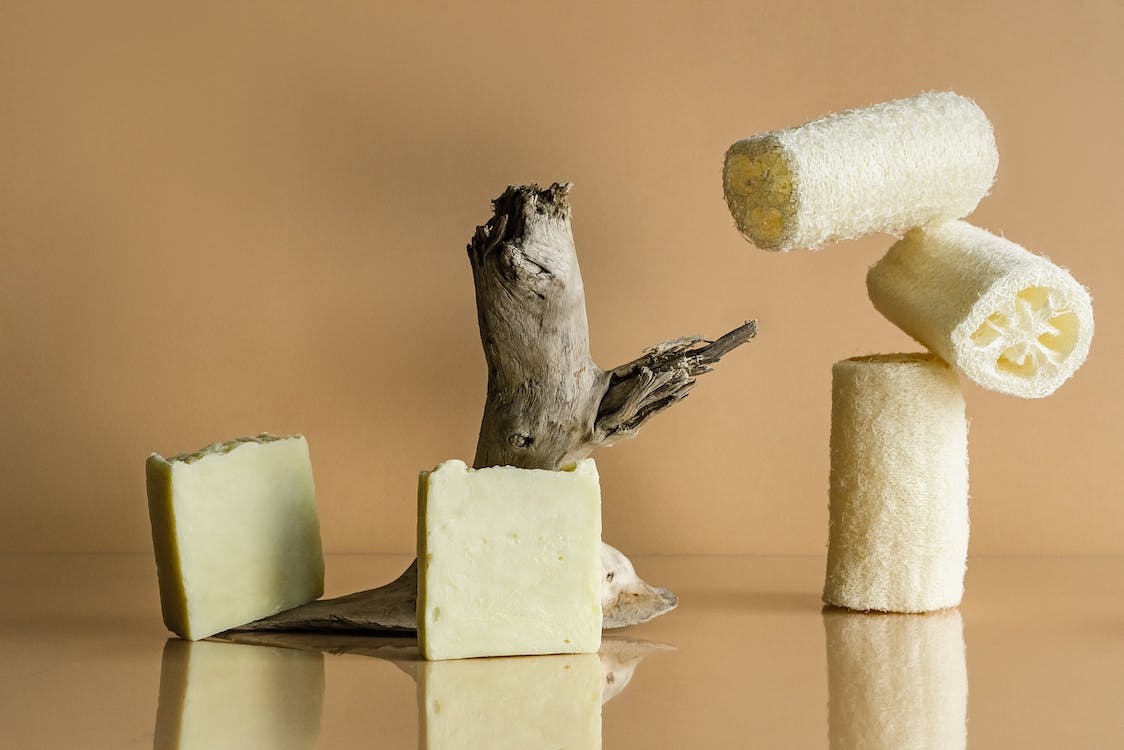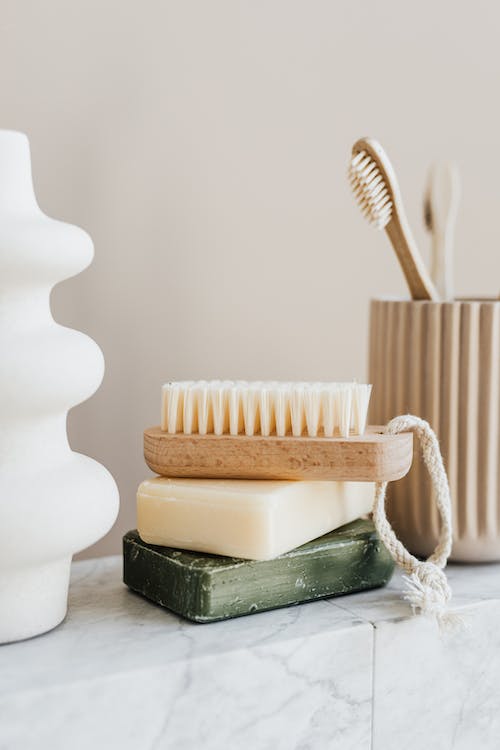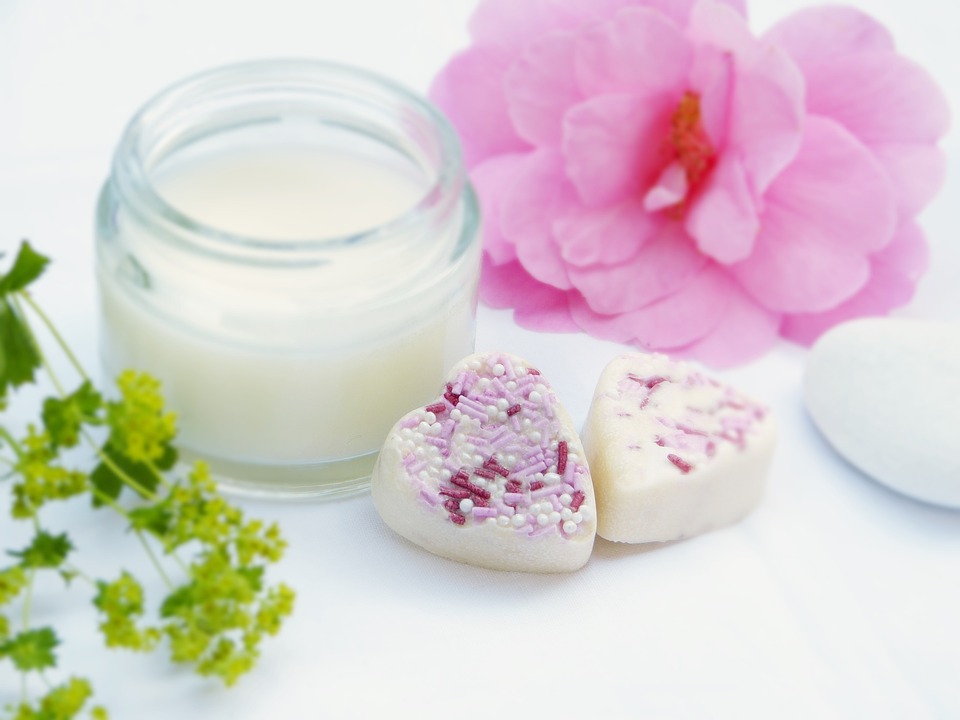Goat milk soap vs regular soap
Goat milk soap is a type of soap that is made with goat milk as a main ingredient. Regular soap can be made with a variety of ingredients, such as plant oils, animal fats, and synthetic chemicals.
Goat milk soap could be beneficial because it may be gentler on the skin than conventional soap. Alpha hydroxy acids, which are found in goat milk, have been shown to exfoliate the skin and improve its texture. Because it contains fats, which can nourish and hydrate the skin, it may also be more moisturizing than regular soap.
However, not all regular soaps are extremely harsh or drying. Soaps that are formulated to be mild and hydrating often contain nourishing ingredients.
What is donkey milk soap?
Donkey milk soap is a type of soap that is made with donkey milk as a main ingredient. Donkey milk is known for its high levels of protein, vitamins, and minerals, and it is believed to have nourishing and moisturizing properties when used on the skin.
Donkey milk soap is used by some people because of its purported skin-benefitting properties. These include the enhancement of skin elasticity, the reduction of fine lines and wrinkles, and the softening and moisturizing of the skin. Donkey milk soap is said to have anti-aging properties and help soothe dry, irritated, or sensitive skin.
The potential benefits of donkey milk soap, however, have not been thoroughly studied, and there is scant scientific evidence to back up these claims. You should know that not all donkey milk soaps are the same, and that the bar’s efficacy and quality may hinge on its particular formulation and the quality of its ingredients.
If you want to give donkey milk soap a try, it’s smart to find a brand that uses high-quality ingredients and has positive customer reviews. Before applying a new skin care product to your entire face or body, you should always perform a patch test to make sure there will be no irritation or other reactions.
Donkey milk soap vs goat milk soap
Goat milk soap and donkey milk soap are both types of soap that are made with milk as a main ingredient.
Some people use these soaps because they believe that the nourishing and moisturizing properties of both types of milk will help soften and moisturize their skin, reduce the appearance of wrinkles and fine lines, and increase the elasticity of their skin.
Here are some key differences between goat milk soap and donkey milk soap:
- Ingredient source: Goat milk soap is made with goat milk, while donkey milk soap is made with donkey milk.
- Nutritional content: Goat milk and donkey milk have different nutritional profiles. Goat milk is rich in proteins, vitamins, and minerals, and it contains higher levels of certain fatty acids and enzymes than cow’s milk. Donkey milk is also rich in proteins, vitamins, and minerals, and it has a higher fat content than cow’s milk.
- Potential benefits: Both goat milk soap and donkey milk soap are believed to have nourishing and moisturizing properties, and some people claim that they can help to soothe dry, irritated, or sensitive skin. However, the potential benefits of these soaps have not been extensively studied, and there is limited scientific evidence to support these claims.
- Price: Donkey milk soap may be more expensive than goat milk soap, as donkey milk is more difficult to obtain and process than goat milk.
Ultimately, the best soap for you will depend on your individual skin type and needs.
Goat milk soap and donkey milk soap are great options if you have sensitive skin or are just looking for a hydrating, nourishing soap.
A regular bar of soap may be all you need if you have normal or oily skin and are just looking for something to clean your body thoroughly.
Olive oil soap vs cow milk soap
Olive oil soap and cow milk soap are two types of soap that are made with different main ingredients. Olive oil soap is made with olive oil, while cow milk soap is made with cow milk. Here are some key differences between these two types of soap:
- Olive oil, the oil used to create olive oil soap, comes from the olive fruit. Cow milk, or milk from a cow, is used to create cow milk soap.
- Cow’s milk is a good source of protein, vitamins, and minerals, while olive oil is high in monounsaturated fats, vitamin E, and antioxidants.
- Possibile benefits include moisturizing and nourishing the skin thanks to the fatty acids found in olive oil soap, which may make it less drying than other soaps. Cow milk soap contains fats that can help hydrate the skin, so it may be moisturizing as well. However, there is scant research to back up claims that using these soaps will provide any particular benefits.
- Soap made from olive oil and soap made from cow’s milk can range in price, depending on the formulation and the quality of the ingredients. Soap made with olive oil may cost more than soap made with cow’s milk due to the relative cost differences between the two ingredients.
What is castile soap?
Castile soap is a type of soap that is made with plant-based oils, such as olive oil, coconut oil, or hemp oil. It is named after the Castile region of Spain, where olive oil soap has been made for centuries.
If you want to give castile soap a try, it’s smart to pick one that has good reviews from customers and is made with high-quality ingredients. Before applying a new skin care product to your entire face or body, you should always perform a patch test to make sure there will be no irritation or other reactions.
Shea butter and goat milk soap
Shea butter and goat milk soap are two ingredients that are often used in skin care products for their potential benefits to the skin. Here are some key differences between these two ingredients:
- Shea butter, a type of fat, is derived from the nuts of the shea tree, an African tree. Milk from goats is referred to as goat milk.
- Shea butter’s nutrient profile shows that it has the potential to both nourish and moisturize the skin due to its high concentration of fatty acids and vitamin E. Goat milk contains alpha-hydroxy acids, which may exfoliate the skin and improve its texture, and is also rich in nutrients like proteins, vitamins, and minerals.
- Potential benefits include the alleviation of dry, irritated, or sensitive skin due to Shea butter’s moisturizing and nourishing qualities. The appearance of scars, stretch marks, and wrinkles may be lessened by using shea butter, according to some. It’s been said that goat milk soap can help keep your skin hydrated and healthy, and that it’s also gentler on the skin than regular soap.
- Shea butter is commonly found in topical treatments for the skin. Soaps created from goat milk are known as “goat milk soap.”
What is African black soap?
African black soap, also known as “Ose Dudu” or “Alata Samina,” is a traditional soap originating from West Africa, particularly Nigeria and Ghana. Ingredients such as plantain skins, cocoa pods, palm kernel oil, and palm oil are burned down to ashes and then combined with water to create a lye solution.
Soap is made by combining this solution with oils like coconut oil and shea butter. Acne, eczema, and hyperpigmentation are just some of the skin conditions that respond well to African black soap’s deep cleansing and exfoliating properties. It’s also great for soothing and moisturizing the skin, and it’s mild enough to use even on the most delicate skin.
Castile soap vs kojic acid soap vs african black soap
| Feature | Castile soap | Kojic acid soap | African black soap |
|---|---|---|---|
| Ingredient | Olive oil | Kojic acid, glycerin | Plantain skins, cocoa pods, palm kernel oil, palm oil |
| Purpose | Gentle cleansing and moisturizing | Lightening and brightening of the skin | Deep cleansing, exfoliating and treating skin conditions |
| Skin type | All skin types | Ideal for people with hyperpigmentation and dark spots | All skin types, especially those with sensitive skin |
| Lather | Creamy lather | Creamy lather | Creamy to sparse lather |
| Scent | Unscented or lightly scented | Scented | Unscented or lightly scented |
Advantages of kojic acid soap
Kojic acid soap has several advantages, including:
- Kojic acid is a popular ingredient due to its skin-lightening properties. It aids in the diminishment of hyperpigmentation, age spots, and dark spots, resulting in a more uniform and radiant complexion.
- Kojic acid’s antioxidant properties aid in warding off free radical damage to the skin and keeping it looking fresh.
- Kojic acid’s antimicrobial properties make it an effective treatment for acne because it eliminates the bacteria that leads to breakouts. Those who suffer from acne can benefit from this remedy because of its efficacy.
- Kojic acid soap is widely regarded as being gentle and safe for use on all skin types. It’s gentler on the skin than products like hydroquinone, which are also used to lighten the skin.
- Simple to apply, all you have to do to use Kojic acid soap is wet your skin and massage the soap into a lather. Also, there’s no fuss involved, so it’s easy to use whenever you want.
It is recommended to conduct a patch test before using any new product on your skin, including kojic acid soap, as different skin types can have different reactions.
